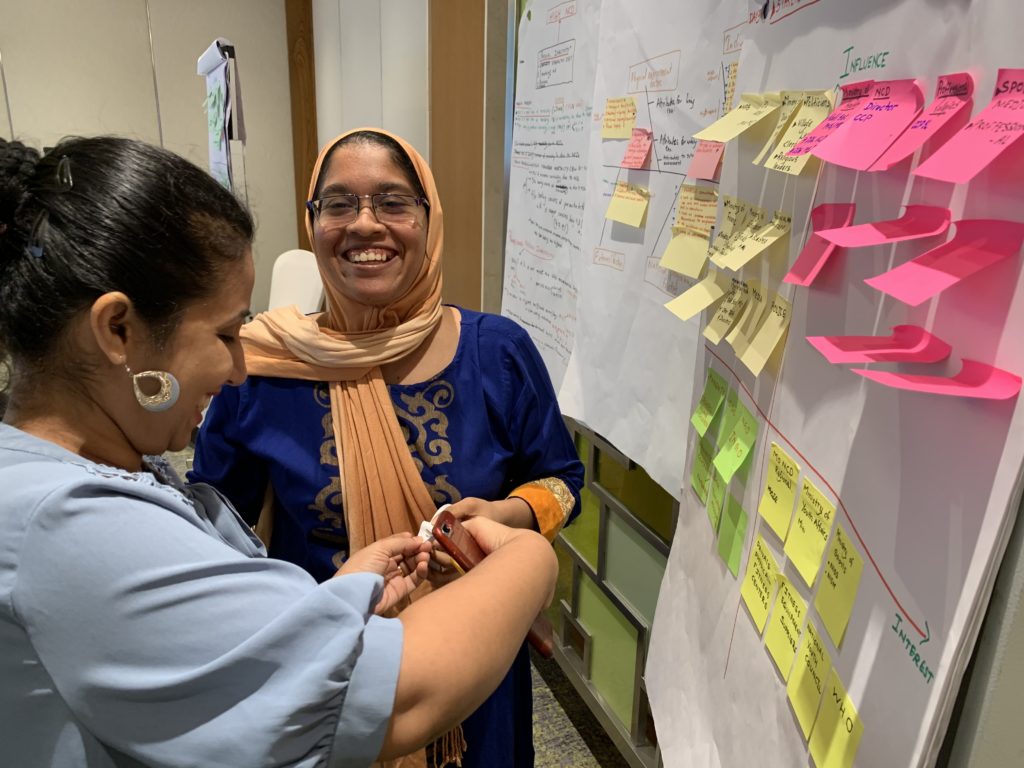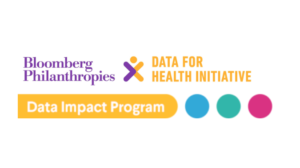A decades-long dearth of global investment in civil registration has culminated in a scandal of invisibility: nearly 45 million deaths and over 50 million births go unrecorded each year, the majority of these in low- and middle-income countries. Without high-quality data, policymakers lack a clear picture of demographic trends or causes of death and disease in their countries, hampering decision-making about how to direct resources. Even where health data is available, it too often remains unused despite its potential to guide critical policy or investment decisions.
Without essential data about pressing public health challenges, governments instead rely on “best guess” methods to guide policy and program budgets. Vital Strategies partners with governments worldwide to not only improve the way they access data, but also to expand the use of data to enhance public health policymaking—presenting government partners with the opportunity to allocate resources and design policies and programs that will have the most impact on people’s health.
#CountingEveryone
Millions of people around the globe live without the rights, protections and benefits afforded by a legal identity, and die without any proof of existence. It’s time to start #CountingEveryone. A new campaign from Vital Strategies and our partners in the Bloomberg Philanthropies Data for Health Initiative partners highlights dynamic leadership and close coordination for improving civil registration and vital statistics (CRVS) systems.
Join us: vitalstrategies.org/CountingEveryone

Our Programs
1. Civil Registration and Vital Statistics
The Civil Registration and Vital Statistics Program has collaborated with governments since 2015 to ensure that all people are counted, through registering births, deaths and causes of death in 24 countries. Improved registration benefits individuals, enabling access to education, health care and inheritance rights, and gives governments a clearer picture of population trends and causes of death and disease, enabling them to know where and how to direct resources.
2. Data Impact
The Data Impact Program partners with governments to enable them to use data to improve public health by prioritizing health issues and identifying populations in need, allocating financial and human resources, enacting laws and regulations, and establishing programs and services. The Program provides technical assistance in three ways: strengthening the “Processes” and systems for evidence utilization, producing analytic insights in the form of data “Products”, and developing and reinforcing capacity of the “People”. The Data to Policy training course builds capacity among government health staff on using data to advance a policy agenda and support specific policy priorities.
3. Cancer Registry Program
Cancer is the second-leading cause of death globally. Monitoring the incidence of new cancer diagnoses, the stage of cancer at diagnosis, and survival rates provides critical information on priorities for attention and on the performance of the health care system. The Cancer Registry Program works with ministries of health to establish, strengthen and expand population-based cancer registries and use the data for policymaking.
4. Global Grants Program
The Global Grants Program, has supported over 100 projects in 48 countries to to enhance their systems of data collection and use, focusing on Civil Registration and Vital Statistics, data-to-policy translation and setting up population based cancer registries. The program expands on lessons learned from previous Data for Health country work and promotes regional collaboration, including the sharing of best practices and technical expertise, among countries addressing similar issues. Projects are country-owned and led locally, resulting in sensible and tangible deliverables that fit local needs.
About the Data for Health Programs
The Data for Health Initiative is a global effort supported by Bloomberg Philanthropies. The Initiative provides technical and financial assistance to low- and middle-income countries worldwide to improve public health data.
Vital Strategies serves as an implementing partner in the Initiative, with several programs related specifically to data improvement and public health intelligence: The Civil Registration and Vital Statistics (CRVS) Program assists governments in strengthening their systems for counting every birth and death and for monitoring the causes of death; the Data Impact Program supports governments to maximize the use of data to enhance public health policymaking and decision-making; the Cancer Registries Program provides assistance to governments in establishing and strengthening population-based cancer registries; and the Global Grants Program provides funds to government and local experts to implement discrete projects focused on data for public health decision-making.
The various Data for Health programs support country partners to strengthen data systems including a focus on gender equity, and all have worked in collaboration to produce guidance and technical assistance on COVID-19 for government partners, enabling them to better measure the scale of the crisis within their borders and execute a data-driven response.
Learn More
Latest News from Data for Health
- Expert Q&A 10.11.2023
- Vital Stories 10.11.2023


